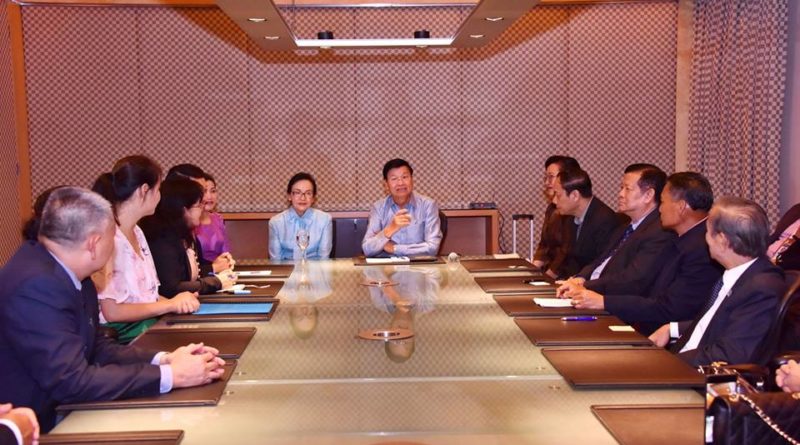Special Incentives Offered To Lao Expats Eyeing Return: PM
Source: Vientiane Times
Prime Minister Thongloun Sisoulith has told ethnic Lao living in Australia that the Lao government offers special privileges for people of Lao ethnicity planning to visit and contribute to the development of their motherland.
The premier made the comment when he met with almost 50 people of Lao descent who are now Australian citizens, during a working trip to Sydney from March 15-19 to attend the Asean-Australia Special Summit, according to a press release from the Ministry of Foreign Affairs.
“The Party [Lao People’s Revolutionary Party] and government have always regarded people of Lao origin living in foreign countries as Lao compatriots who are inseparable,” he told the group.
Expatriates are viewed as a driving force for the development of Laos, as well as an important bridge to enhance relations and cooperation between Laos and their countries of residence, Mr Thongloun said.
“The Party and government have policies in place to encourage and facilitate people of Lao origin living in other countries to visit their motherland and relatives, participate in celebrations of various important national events, and contribute to national development,” he added. The group who met the prime minister in Sydney was led by a member of the Lao Front for National Development to Australia, Mrs Phaivanh Phouminh Pholsena.

A number of special policies are in place that favour people of Lao ethnicity living in foreign countries, according to the Department in Charge of Relation Affairs with Lao Origin in Foreign Countries, under the Ministry of Foreign Affairs.
People of Lao origin who are under the age of 15 or over 64 enjoy visa exemptions when entering Laos, the department’s Deputy Director General, Mr Vanxay Xaisena, said
Working-age people of Lao origin are required to obtain an entry visa but do not have to pay a visa fee.
“A working-age expatriate will not have to pay the visa fee if he or she obtains a visa from a Lao embassy in their country of residence,” Mr Vanxay told Vientiane Times.
Those obtaining a visa in a third country will not be exempted from the visa fee.
In addition, people of Lao origin who wish to marry a Lao national will undergo simpler procedures than other foreign nationals.
An additional policy allows people of Lao origin to apply for permanent residency in Laos. To obtain permanent residence, expatriates are required to have relatives in Laos who can guarantee their status and fulfill the required procedures.
“Many people have been granted permanent residence,” Mr Vanxay said.
Special consideration is also afforded to expatriates seeking to regain Lao citizenship.
The requirements are less stringent, including a shorter time of residence in Laos prior to application. Additionally, government ministries and other sectors are working together to draw up legislation that will permit people of Lao origin to buy property in Laos, including land use rights.
“Once the draft is finished it will be submitted to the National Assembly for approval,” Mr Vanxay said.
Currently, there are almost 900,000 ethnic Lao living in 15 countries, with the largest number of almost 500,000 people living in the United States. There are at least 15,000 in Australia.

